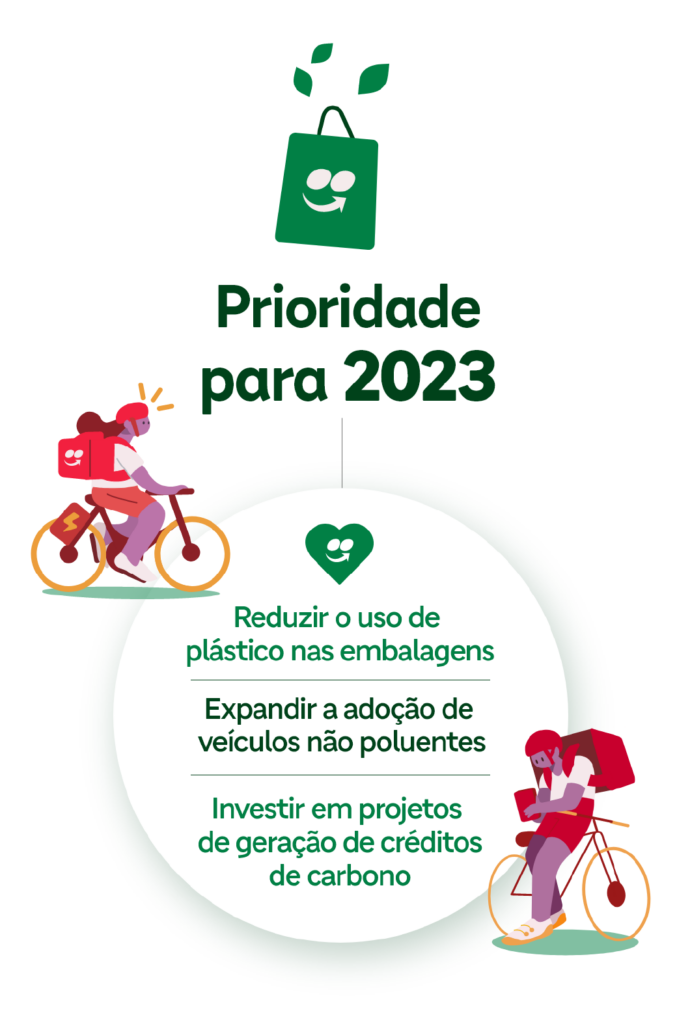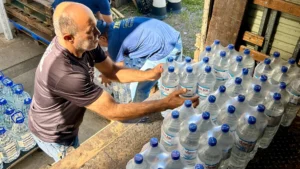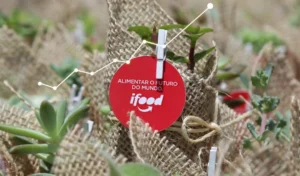In 2022, one in every five orders was delivered by iFood in a non-polluting mode (such as bicycles, electric bicycles and electric motorbikes), reducing their impact on the environment. And more than 300 million meals were shipped without single-use plastic items, such as cutlery and straws.
This is because clean delivery, with fewer plastic items and more non-polluting vehicles, was the company's priority in the environmental area. André Borges, head of iFood sustainability, reveals to the iFood News what were the advances in this field in 2022 and what is the priority for 2023; read below.
iFN – In the environmental area, which were the iFood actions that stood out the most in 2022?
Andrew – At the beginning of the year, iFood’s two main objectives were to have sustainable packaging solutions for reduce the use of plastic and scale the use of clean modes, such as Electric motorcycle.
Looking back and seeing what worked best, the big highlight was the evolution of iFood Pedal. In addition to bringing sustainability gains and showing our brand on the streets, the shared bicycle rental program (conventional and electric) makes a lot of sense for iFood's operation.
The second highlight was the electric motorcycle. Although it has not yet reached the scale we want, we managed to encourage delivery people to migrate to this non-polluting mode, as well as to bicycles. This agenda went very well in 2022.
Furthermore, we have made great progress in sustainable packaging and we managed to create several solutions that allow us to have more volume on the streets in 2023. And there were also forest regeneration actions, in which we planted 50 thousand seedlings in São Paulo.
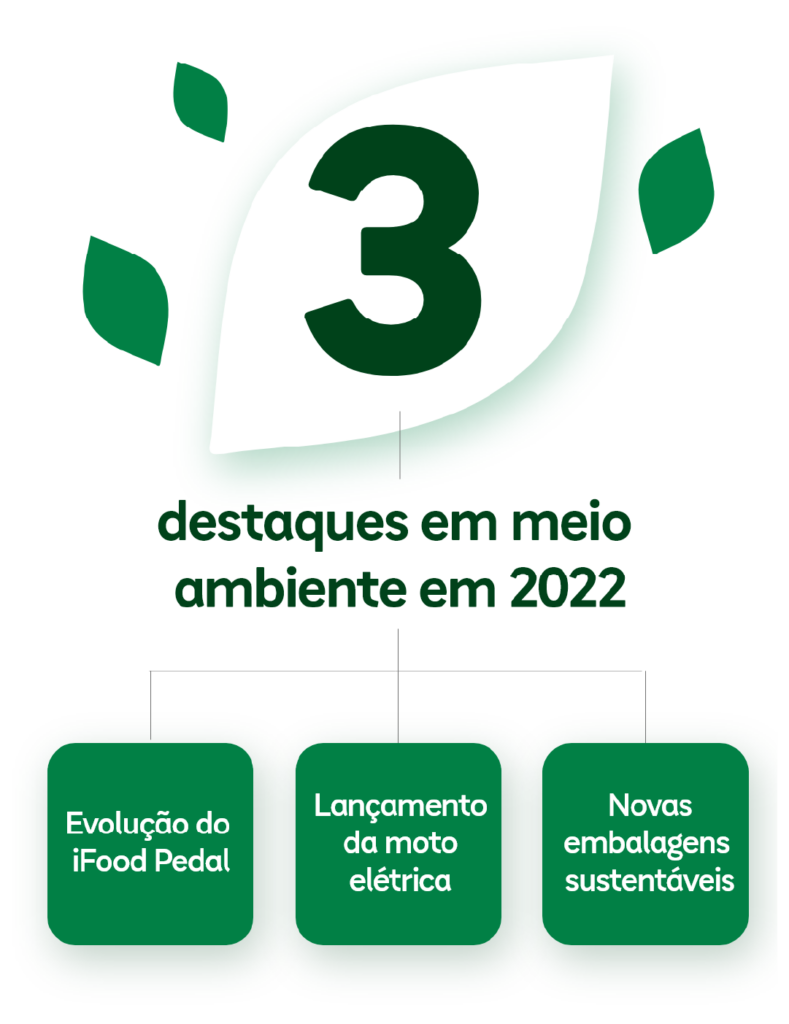
iFN – What were iFood’s solutions to reduce the use of plastic in delivery?
Andrew – First, we got to know our operation better. We made a waste measurement study, a first in the world, to understand what our plastic footprint is.
Today we know what the categories that use the most plastic, which are deliveries of snacks, Japanese food and Brazilian food, or lunch boxes. So we are very focused on solving the issue in these three categories.
We then developed solutions for snacks, such as paper boxes, in partnership with Klabin. At Rock in Rio, we developed packaging with Suzano for lunch boxes.
In these two cases, the technology and design have already been approved. Now we have solutions ready to scale, but we have a clear premise that sustainable packaging is accessible to partner restaurants. And that is what we are negotiating with suppliers at the moment.
And, with GrowPack, we have the development of packaging from corn straw. We are testing 30 thousand packages with restaurants in the Campinas region to collect feedback of restaurants and customers. They are loving it. When we finish this phase, we will start selling at iFood Shop.

iFN – In non-polluting modes, what have been the advances with bicycles?
Andrew – We had a great case in Rio de Janeiro, which was the first city to reach iFood's goal of making 50% of deliveries using non-polluting modes until 2025.
This was very significant because Rio is the second capital with the highest number of orders in Brazil. And because we managed to reach almost 60% of use of clean modes in dark stores.
The expansion of iFood Pedal was also important. At the beginning of 2022 it was only in São Paulo and Rio de Janeiro, and now we are in four more cities: Recife, Salvador, Distrito Federal and Porto Alegre. It is a program that is working very well.
And the best of all is that we were able to prove in 2022 the benefit of bicycles for the business as well. Therefore, in 2023, we want to expand the fleet even further and take the iFood Pedal to more cities. In March, we want to reach 22% of deliveries being made using clean modes.
iFN – Another important action in this regard was the launch of the electric motorcycle. How has this evolved in 2022?
Andrew – In the case of the electric motorcycle, we managed develop a vehicle that truly meets the needs and with an operating model that makes sense for delivery people.
But unfortunately, we were unable to scale as planned. What we want to do now is considerably increase the number of electric motorcycles in operation.
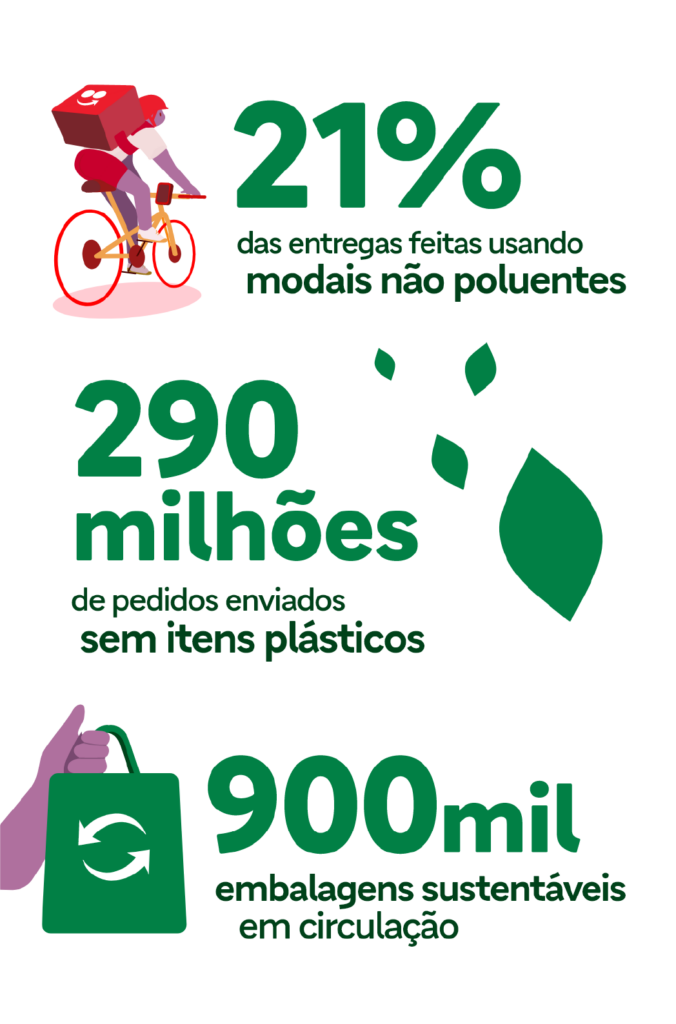
iFN – In 2022, iFood also invested in recycling. How important are these actions?
Andrew – For us, recycling is very important to deliver our commitment to zero plastic pollution by 2025, so we are creating solutions in this field. In 2021, the iFood invested a lot in PEVs, the Voluntary Delivery Points, but we realized that their volume, for recycling, was low.
iFood wants to make big bets in this field to make a difference in Brazil's recycling rates. We continued with PEVs, but we took a more ambitious action, which was join us with Fortaleza City Hall to change the city's recycling scenario in the coming years.
The city hall wants to triple the volume recycled by 2026, reaching 12%, 15% of the waste generated. To this end, we finance electric tricycles to improve the logistics network for collection and recycling. We want Fortaleza to be a case of success that can be replicated in other large Brazilian cities.
iFN – What are the strategic focuses of iFood’s environmental area for 2023?
Andrew – Our focus, in fact, is on 2025, and it will not change: we will continue to prioritize solutions to promote the use of sustainable packaging and clean modes. Of course, we will continue to carry out important projects, such as recycling in Fortaleza.
Another important point is that iFood, which already is a carbon neutral company, will start investing in projects to generate carbon credits in 2023. Instead of buying carbon credits on the market, let's invest in projects who have long-term contracts.
This will be a gradual change over two or three years so that we are self-sufficient in carbon credits, that is, the carbon dioxide we emit on the streets, during deliveries, will already be offset by the projects we invest in.
